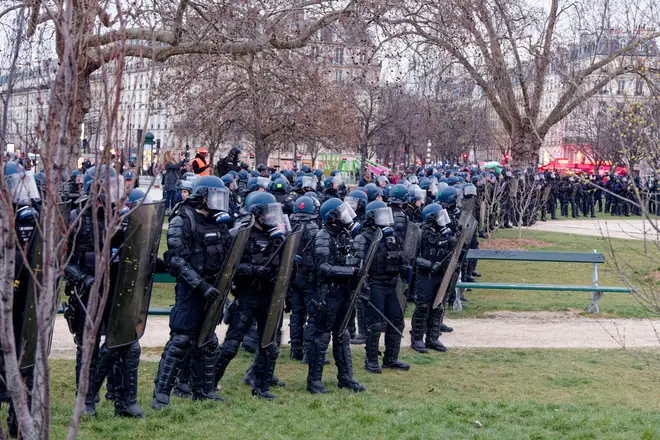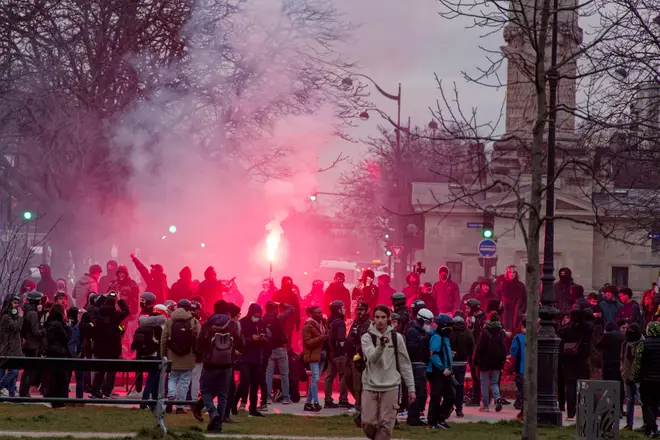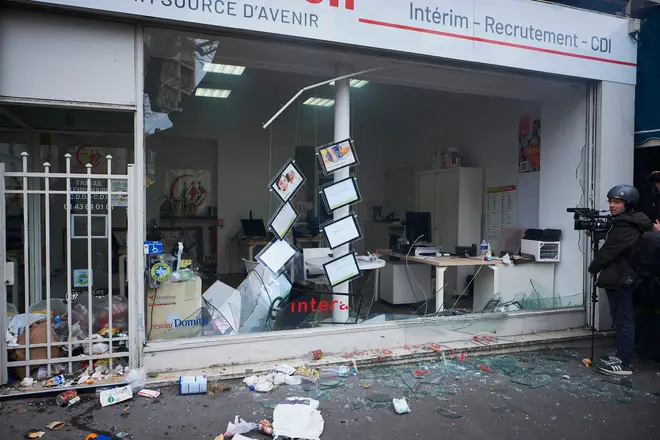
Matthew Wright 7am - 10am
17 March 2023, 12:18 | Updated: 17 March 2023, 12:55

Riots have erupted in France after President Emmanuel Macron forced through a Bill raising the retirement age from 62 to 64 without a vote.
Police deployed tear gas and water cannon as protesters started fires and threatened the president's home in angry scenes.
French president Macron sparked the fury of workers and his political opponents after using an emergency presidential decree to raise the retirement age from 62 to 64.

Thousands of people took to the streets of Paris, lighting fires, vandalising buildings and clashing with police. Police have fired tear gas to keep the furious mob away from the Elysee Palace.

Demonstrators gather in Paris over pension plans
Read more: Three men deny murdering footballer Cody Fisher in Birmingham nightclub on Boxing Day

Thousands gathered in protest on Thursday at the Place de la Concorde, which faces the National Assembly building.
Overnight police officers charged the demonstrators in waves to clear the area. Small groups then moved through nearby streets in the chic Champs-Elysees neighbourhood, setting fires.

There were similar protests in Rennes and Nantes in eastern France to Lyon and the southern port city of Marseille, where shop windows and bank fronts were smashed, according to French media.
French interior minister Gerald Darmanin told the radio station RTL on Friday that 310 people were arrested overnight.

Most of the arrests, 258, were made in Paris, Mr Darmanin said.
The trade unions that had organised strikes and marches against a higher retirement age said more rallies and protest marches will take place in the days ahead.
"This retirement reform is brutal, unjust, unjustified for the world of workers," they declared.

Mr Macron has made the proposed pension changes the key priority of his second term, saying reform is needed to keep the pension system from diving into deficit as France, like many richer nations, faces lower birth rates and longer life expectancy.
Mr Macron decided to invoke the special power during a Cabinet meeting a few minutes before a scheduled vote in the National Assembly, where the legislation had no guarantee of securing majority support.
The Senate adopted the Bill earlier on Thursday.

Opposition politician said the government should step down.
If the expected confidence motion ends in a no-confidence vote, which requires approval from more than half of the Assembly, it will be a first since 1962 and force the government to resign.
Mr Macron could reappoint Ms Borne if he chooses and a new Cabinet would be named.
If the motion does not succeed, the pension Bill will be considered adopted.